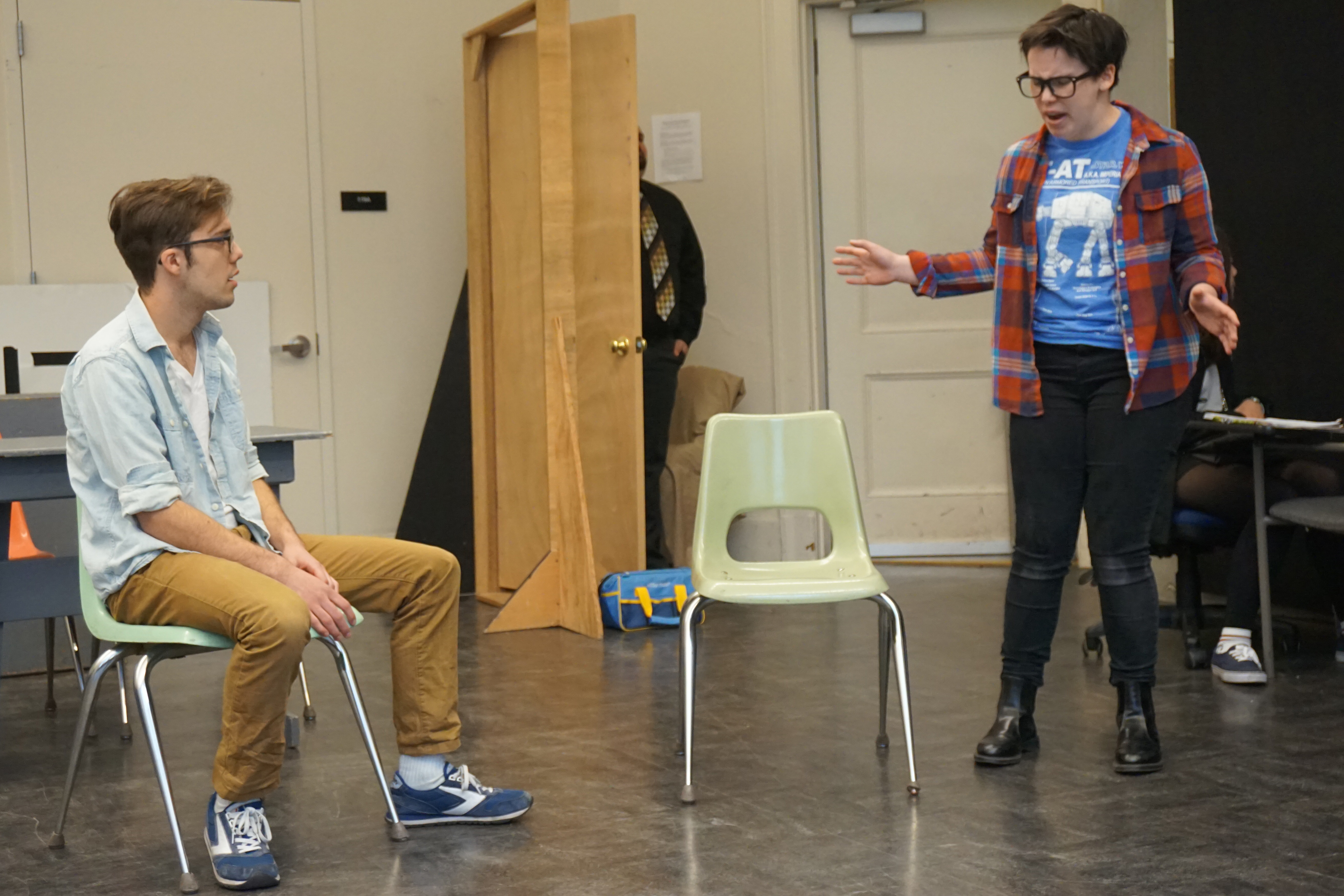Wu addresses community concerns
Tax reform and the financial aid drug provision were two of the topics that Congressman David Wu addressed yesterday in a town hall meeting on campus.
George Pernsteiner, PSU vice-president of finance and administration, introduced Wu as a man who exemplifies the priorities that Dr. Martin Luther King Jr. fought for, including civil rights and justice.
A range of issues were discussed, from the Enron controversy to local library funding. The audience of 80 to 100 people was included all age groups, and people within and outside the Portland State community.
Representatives from the Associated Students of PSU (ASPSU), the Oregon Students of Color Coalition (OSCC), Americans for Fair Taxation, Oregon Education Association (OEA) and the Federation for American Immigration Reform (FAIR) were in attendance.
Mary Cunningham, ASPSU president, began the question session by asking about challenges in the re-authorization of the higher education bill.
Wu expressed the need to hear the opinions of students, faculty and the administration to determine what should be included in the next bill.
He also discussed his concern that students are graduating with so much debt and that student financial aid has not kept up with the cost of education.
Wu would like to see an increase in Pell Grants and the interest on student loans be made completely deductible.
When the issue of “anti-terrorist” legislation was raised, Wu said, “I never expected to have to defend domestic liberty as vigorously as I think we have to defend it now.”
He said that in times of crisis, people tend to rush to hasty decisions that they sometimes regret.
He said, “Sometimes we’re successful, sometimes we’re not, but I’m trying to keep pushing in that direction.
A representative from the OSCC voiced concern about the higher education act drug provision that denies financial aid to people based on prior drug-related convictions.
Wu responded, “I want to be very honest. I will listen, I will think about it, but I won’t give a commitment to change.”
He added that the only reasonable thing a person can do is listen and think through these things.
On the issue of library funding, Wu pledged his full support, saying, “I am glad to try for any library.”
He said that libraries are a crucial community resource and felt good that “sometimes our kids want to get books more than candy.”
Emily Garrick, ASPSU vice-president, sparked an enthusiastic response when she asked what universities can go to get students involved in voting.
Wu explained that part of getting people involved resides with the politician focusing on issues that make a difference to people in their district.
He said, “A burden on elected officials is to identify issues of concern then communicate them.”
However, he said the other half of the challenge is for people to be engaged.
Wu advised people in the university communities to keep organizing and convincing peers that it is relevant to be active in the voting process, and it affects loans, access to education and causes of social justice.
Wu said he will continue to do his part and has been talking with colleagues over the last two to three years about how to increase involvement in the democratic process.
He said, “I never ran for public office until 1998, and wouldn’t have run without a clear commitment to be involved.”
Mike Stein, district three director of Americans for Fair Taxation, asked if Wu would support legislation to replace the federal income tax with a federal sales tax.
Wu said it was unlikely he would support that, saying, “Once you work through all the exemptions and add in the tiers of taxation, the tax rate becomes astronomical.”
When an audience member voiced concern about the Enron controversy with relation to campaign finance reform, Wu assured her that the Enron issue is being discussed widely.
Wu said that some positive things can come out of terrible situations and that the Enron problem has brought campaign finance reform issue back to the “front burner”.
He said, “A lot of things in America are done in response to crisis. Significant adjustments have been appropriate [to campaign finance] for decades.”
He concluded that issue by saying that incremental steps can be taken to improve what we have, but we are unlikely to see public finance reforms.
A representative from FAIR posed the last question of the meeting. She voiced her organization’s opinion that the American borders need to be closed to immigrants and asked if Wu would support that stance on immigration.
Wu said that he respected her opinion but that they would have to agree to disagree. He said that people should be able to move across borders and that one of America’s most important values is that flows of people come across the border. He explained that they bring talents and improve the economy. He said that immigration is “what it is to be American.”
Wu also pointed out that immigration rates were higher at the turn of the century, with 14 percent of Americans being foreign-born, than now, with only 7 percent of Americans being foreign-born.
Although he disagreed with the FAIR representative on immigration, Wu encouraged her to stick with her vision. He said, “Be as committed when you’re 19 and be more committed at 49, 59 and 69.
Wu ended the meeting by reminding everyone the importance of community and political involvement.
Jesse Shapiro, multi-cultural affairs director and junior history major, said, “It’s great that he’s willing to work with students.”
Shapiro was at the meeting to represent the OSCC and anticipated Wu taking the stance he did on the higher education act drug provision.
For more information on topics discussed at the town hall meeting, check out the following Web sites: Information on the higher education act drug provision: www.orstudents.org, Information on the replacement of the federal income tax: www.fairtax.org




